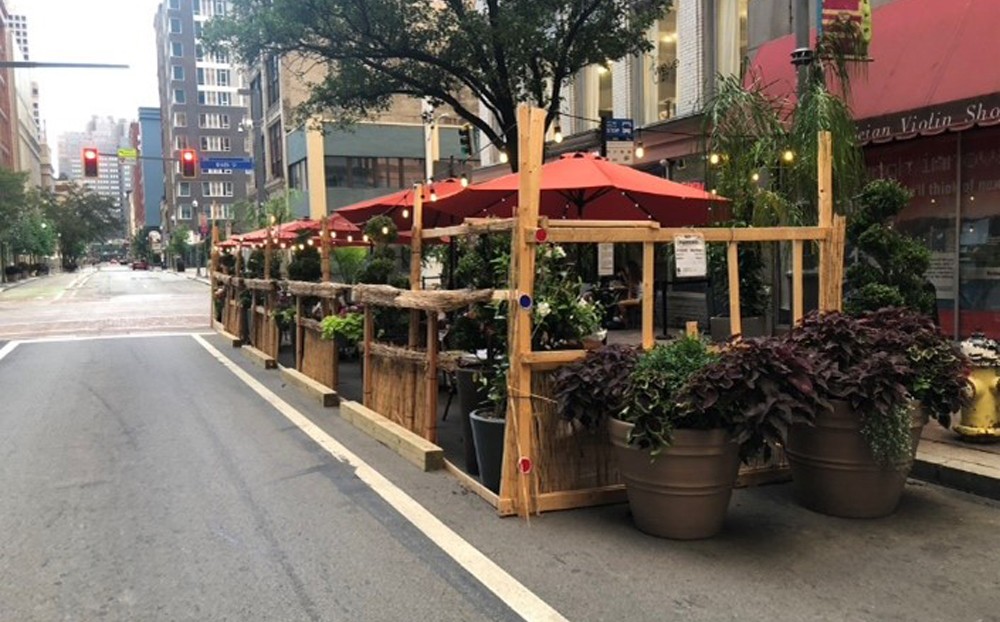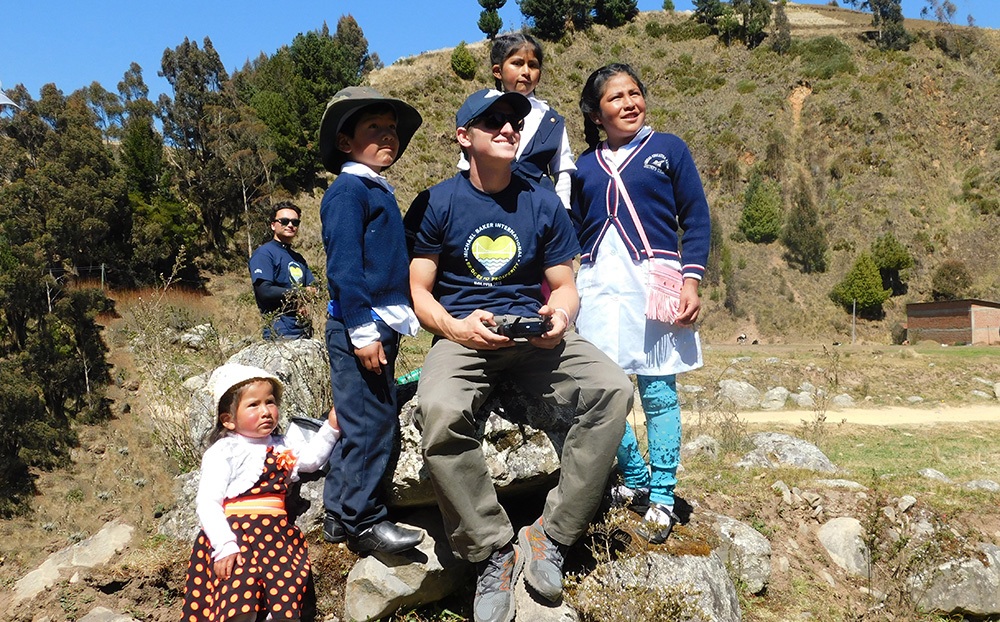The Covid-19 pandemic forced the closure of public gathering spaces for the better part of a year before slowly reopening with changes focused on safety and capacity control. Covid-era space adjustments have redefined parks, concerts, dining and more, creating the need for reimagined areas where people can safely meet with others.
Creative adaptations to public spaces are critical for a return to vibrant urban activity, something Michael Baker’s Urban Design Studio, in partnership with the Pittsburgh Downtown Partnership (PDP) and City of Pittsburgh’s Department of Mobility and Infrastructure (DOMI), sought to bring back to Downtown Pittsburgh, Pennsylvania, home to the city’s central business district and highest concentration of restaurants.
Driving our process for this project was the idea of Regenerative Streets: designing an environment that is adaptable with the capacity to transform into different uses as the needs of the space change. Dictated by economic, environmental and social factors, these spaces generate benefits immediately, with the ability to adapt to different uses in the future as needs change. It is not planning for an endpoint, but planning for a future that while uncertain is full of opportunity.
Penn Avenue is the oldest and most historically significant street in Pittsburgh. It serves as the core of the city’s Cultural District, home to Heinz Hall, Benedum Center and Byham Theater, is adjacent to the David L. Lawrence Convention Center and Heinz History Center and features many shops and restaurants. Penn Avenue, as well as neighboring 6th Street, are narrow, but important, streets with through traffic and street parking. Sidewalks offer the only option for pedestrians and bicycle connectivity is provided through dedicated lanes. As Covid-19 reduced traffic in the area, we saw these streets as opportunities to solve the immediate needs of adjacent restaurants through a street redesign pilot program.
The most immediate need throughout the pandemic was to address the limited seating for indoor establishments due to restricted occupancy rates. However, by creating new outdoor spaces, we could bring restaurants back to near-full capacity while providing customers with safe seating options.
With the potential to benefit 70 local Pittsburgh restaurants, we aimed to address the priorities of the PDP and DOMI. In reimagining these thoroughfares, we engaged our partners with a few factors in mind:
- Designate areas for outdoor, socially distanced dining for local restaurants
- Provide ADA-accessible spaces for through pedestrian flow as well as access to all dining locations
- Slow down motor vehicles through traffic calming techniques
- Maintain safe bicycle access
For the project to be a success, we needed to address these factors while still enabling customers to access the restaurants in a safe manner, via the mode of their choice. The PDP was instrumental in maintaining constant communication with Stakeholders, explaining the concepts and benefits of removing on-street parking.
The needs of the city and the idea of Regenerative Streets intersected with the redesign of these downtown streets. Travel lanes along these roadways were narrowed to 11 feet to reduce traffic speed, and temporary barriers were introduced to allow for physical separation between the vehicle and pedestrian spaces. Portions of travel lanes and parking spaces were converted into outdoor seating to safely accommodate restaurant patrons, and bike lanes were reconfigured to maintain connectivity around the new dining spaces. By modifying the physical space and function, the street has become better equipped to accommodate new economic and social activities, is more diverse in terms of use capabilities (beyond a motorized transportation function), better equipped to deal with change and adapt to future needs, as well as generating new activity. This pilot program was embraced by businesses and patrons alike, offering a safe dining option.
We will continue this discussion with part two of Reimagining Public Spaces through Urban Regeneration.




